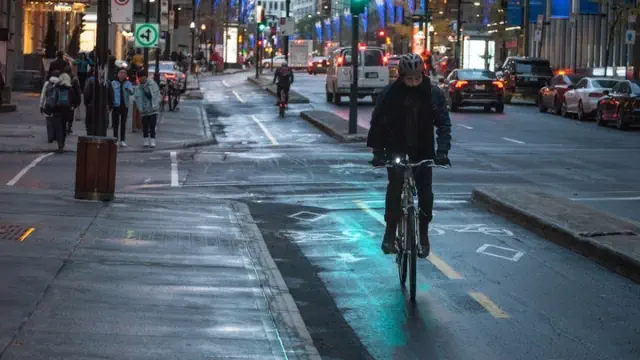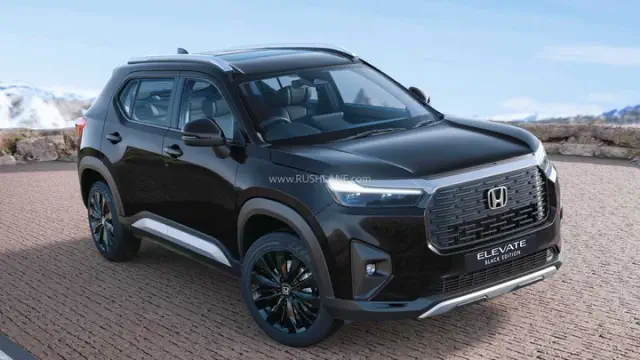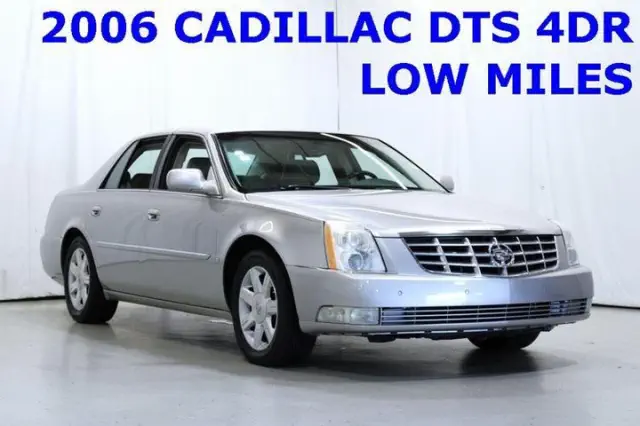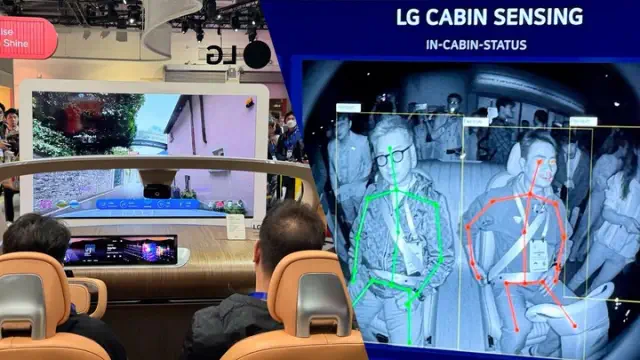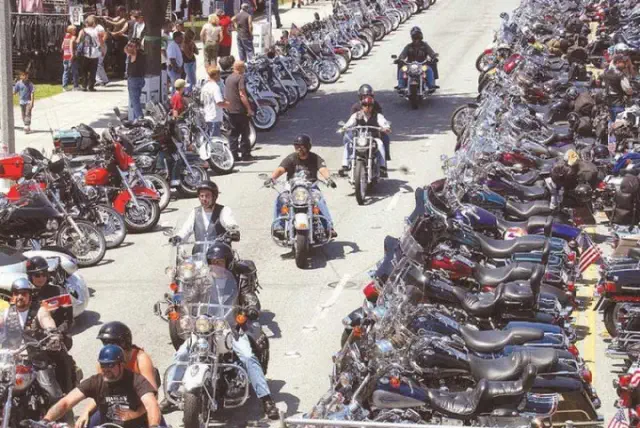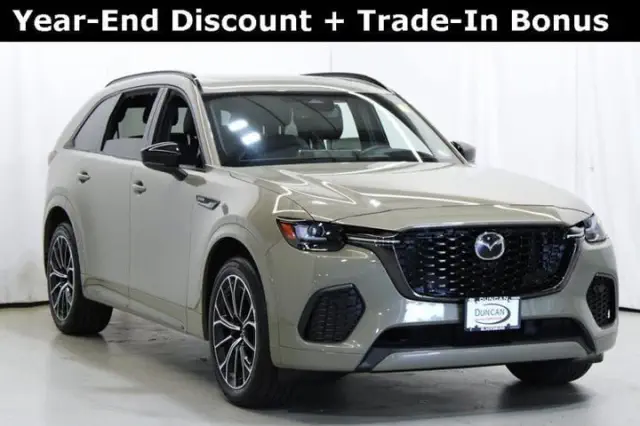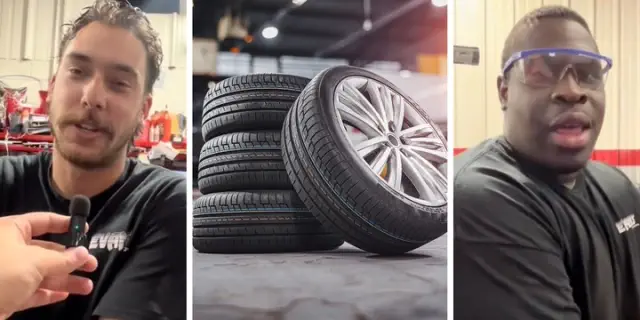Written by Randy Bell
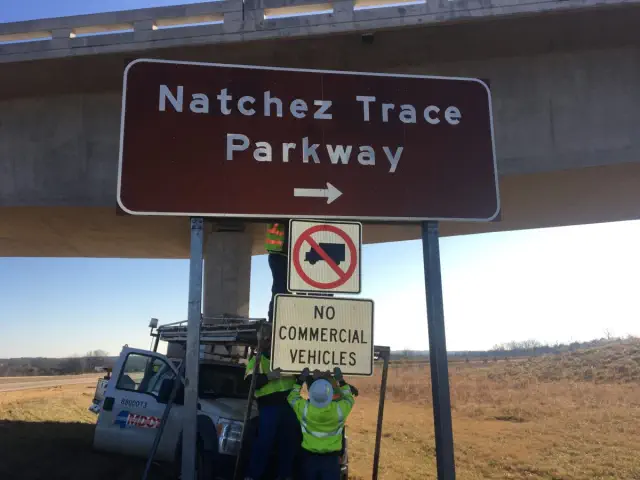
View pictures in App save up to 80% data.
In the past, it was rare for drivers to encounter a tractor trailer on the Natchez Trace. However, this has changed in recent times, with such vehicles appearing with greater frequency. The district ranger overseeing the Parkway segment that traverses Clinton suggests that the navigation systems employed by truck drivers could be contributing to this rise.
“Most of them aren’t relying on commercial GPS anymore,” states Stephen Dollinger. “Instead, they are utilizing Google Maps or Apple Maps on their smartphones.”
These systems fail to alert truck drivers that commercial vehicles are not allowed on the Trace, and those who break this rule may face hefty fines.
“I wouldn’t want that one at all,” Dollinger remarks. “I think it costs around $330.”
However, certain truck drivers, whether lacking information or opting to take risks, continue to navigate the Trace. This poses a problem throughout the entire Parkway, particularly in the Clinton and Ridgeland regions, where some big rig operators utilize it as a shortcut between I-20 West and I-55 North.
Although their navigation system may direct them onto the Trace, there are clear signs indicating that commercial vehicles are prohibited.
When Dollinger stops a truck driver, he often encounters a variety of excuses.
“Frequently, I hear things like, ‘I missed the sign,’ or ‘I noticed the sign but proceeded regardless.’”
However, Dollinger notes that he hasn't encountered many offenders who fail to grasp the consequences of their actions.
"We spent approximately two years collecting data, which included truck license plate numbers, driver information, and DOT numbers, in order to analyze the number of repeat customers we have."
After completing all those tasks, we discovered that our average for repeat customers was around one percent or even lower.
When truck drivers are halted on the Trace, they receive a citation and are directed to leave the Parkway.
Dollinger explains, “We typically advise them to exit onto the upcoming state highway. We prefer not to direct them towards the narrower county roads, as that could potentially lead to further complications.”
He mentions that one of the reasons for restricting commercial vehicles on the Trace is to allow visitors to appreciate the landscape without the obstruction of large trucks.
“It’s a route meant for tourists,” Dollinger explains. Consequently, it’s not ideal for large trucks. “Our lanes are narrower than typical lanes. While most are eleven feet wide, ours generally measure about ten feet across.”
Additionally, there are limited areas along the Parkway where trucks can safely pull over in case of an issue.
The Trace has a posted speed limit of fifty miles per hour, making it unsuitable for truckers who need to rush. However, Dollinger notes that many of the large trucks he sees on the Parkway aren’t exceeding the speed limit, which creates a different set of challenges.
"I've seen a handful of trucks exceeding fifty, but the majority are actually moving at a slower pace, resulting in traffic congestion." This can create annoyance for other motorists who find it difficult to overtake the truck.
Due to the small number of rangers monitoring the Trace, assessing the extent of truck traffic has proven challenging. To better understand the situation, several new and sophisticated traffic counters have been set up to evaluate the various types of vehicles utilizing the Parkway.
Dollinger remarks, “In the upcoming months, we’ll get a clearer picture of the actual figures for commercial vehicles. If we notice a period with an increase in [trucks], we’ll modify our shifts to ensure [rangers] are available during those peak times.”
Certain commercial drivers can avoid receiving a ticket, even if a ranger spots them on the Parkway, as it may not be feasible or safe to stop them.
Dollinger states, “There will be moments when we spot them, but to be frank, we won’t be maneuvering through a dozen other vehicles just to get close to a semi. We’re not going to increase the risk of an already hazardous situation that the 18-wheeler is causing on the road.”
The rangers welcome feedback from drivers regarding trucks traveling on the Trace.
Dollinger reminisces about a recent piece of advice he got.
"Earlier, I was south of I-20 when I received a call regarding a tractor-trailer on the Parkway. I was about to make my way back toward Clinton, but I decided to stay put and wait for the 18-wheeler to arrive. Once he showed up, I was able to handle the situation, issue him a ticket, and send him on his way."
“We certainly appreciate the inquiries regarding this matter,” Dollinger states. “If we have personnel nearby or someone who can reach the location, we will absolutely respond and address the situation.”
For reporting emergencies or any unlawful activities occurring on the Parkway, please dial 1-800-300-PARK (7275).


